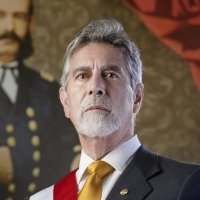A Conversation with President Francisco Sagasti of Peru
Last November, Francisco Sagasti was sworn in as interim president of Peru, the country’s third president in less than a week. His election served to calm the streets of Lima, where tens of thousands of Peruvians, mostly young people, had protested the abrupt impeachment of a popular president, Martín Vizcarra. A deadly crackdown on demonstrators left two people dead and hundreds injured, further enraging the public.
For now, interim President Sagasti has tamed the chaos, but the country remains in lockdown to slow a massive spike in coronavirus infections. For a time, Peru had the highest per capita mortality rate in the world from COVID-19; the virus has sickened 1.2 million Peruvians and killed more than 42,000. In 2020, Peru’s economy contracted by 12 percent, one of the worse recessions in Latin America. But buoyed by high copper prices, a recovery of demand from China, and the tailwinds from a large stimulus package, Peru’s GDP is projected to grow by 9 percent in 2021, according to the IMF. Unlike his two immediate predecessors, Sagasti is expected to serve out his term.
Still, the country’s political future is uncertain. Peru will hold general elections in April. The weak and fragmented political system has not yielded a strong front-runner—the leading presidential candidate has only 17 percent support. And almost half of Peruvians say they don’t know who they’ll vote for.
This webinar was the third of the Latin American Program’s “Crisis Conversations,” a series of dialogues with Latin American leaders about overcoming policy challenges during this pandemic. Earlier events featured President Lenín Moreno of Ecuador and President Luis Abinader of the Dominican Republic.

Speaker

Former President of Peru
Moderators


Hosted By

Latin America Program
The Wilson Center’s prestigious Latin America Program provides non-partisan expertise to a broad community of decision makers in the United States and Latin America on critical policy issues facing the Hemisphere. The Program provides insightful and actionable research for policymakers, private sector leaders, journalists, and public intellectuals in the United States and Latin America. To bridge the gap between scholarship and policy action, it fosters new inquiry, sponsors high-level public and private meetings among multiple stakeholders, and explores policy options to improve outcomes for citizens throughout the Americas. Drawing on the Wilson Center’s strength as the nation’s key non-partisan policy forum, the Program serves as a trusted source of analysis and a vital point of contact between the worlds of scholarship and action. Read more
